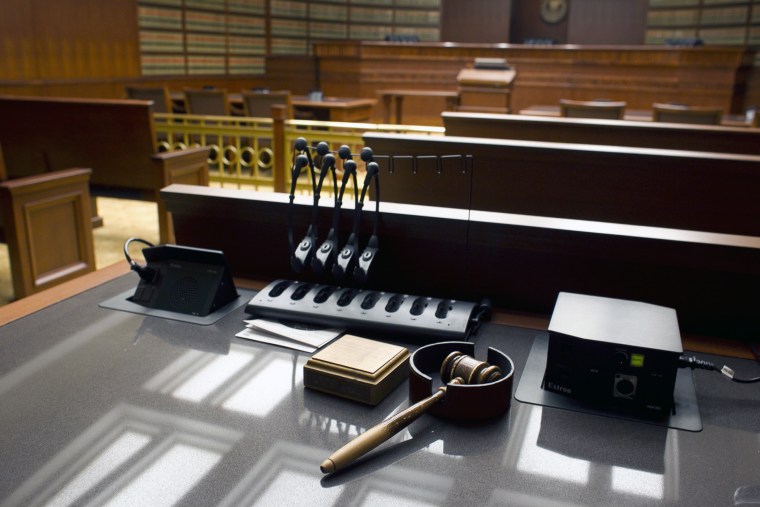Donald Trump and his lawyers haven't exactly been transparent when it comes to the president's personal finances, so the House Oversight Committee subpoenaed Trump's accounting firm, Mazars, to acquire materials on the president's financial history. The Republican's lawyers sued in the hopes of blocking the subpoena.
It set the stage for an interesting federal court hearing, in which a judge "expressed astonishment Tuesday at arguments raised by President Trump's lawyers."
Some of the underlying legal issues are complex, but as Rachel explained on the show last night, the point lead Trump attorney William S. Consovoy hoped to make was relatively straightforward: practically all congressional oversight of presidential wrongdoing is illegal.
U.S. District Judge Amit Mehta took some time to test the scope of the argument. The Washington Post's Dana Milbank highlighted one of the key exchanges from the courtroom:
Mehta, an Obama appointee, probed for the limits of this breathtaking theory but found none: Trump's finances are not subject to investigation?"Correct," Consovoy informed the judge.Congress can't verify the accuracy of the president's financial statements?"Correct."If "a president was involved in some corrupt enterprise, you mean to tell me because he is the president of the United States, Congress would not have power to investigate?"No, Consovoy said, because that's "not pursuant to its legislative agenda."
Of course, by this reasoning, Congress' Watergate investigation was itself illegal. When the judge yesterday asked specifically whether Nixon's corrupt enterprise should've been shielded from congressional scrutiny, Trump's lawyer hedged, saying he'd "have to look" at some of specific questions surrounding the controversy.
Or put another way, according to the president's attorneys, the Watergate hearings may have been unconstitutional, but he'd need to do some additional research before giving a definitive answer.
In case this isn't obvious, the argument from Team Trump is quite nutty. The Republican's lawyers went to court and argued, in all seriousness, that Congress has no legitimate authority to scrutinize presidential corruption -- period, full stop.
This argument is unlikely to prevail, and if Trump is counting on a legal victory, he should probably start lowering his expectations.
But the fact that his lawyers -- hired specifically to keep his financial information hidden -- would even push this theory in a courtroom is extraordinary. When Trump's war on oversight reaches a level in which his lawyers suggest the Watergate hearings were themselves legally dubious, there's a problem.
